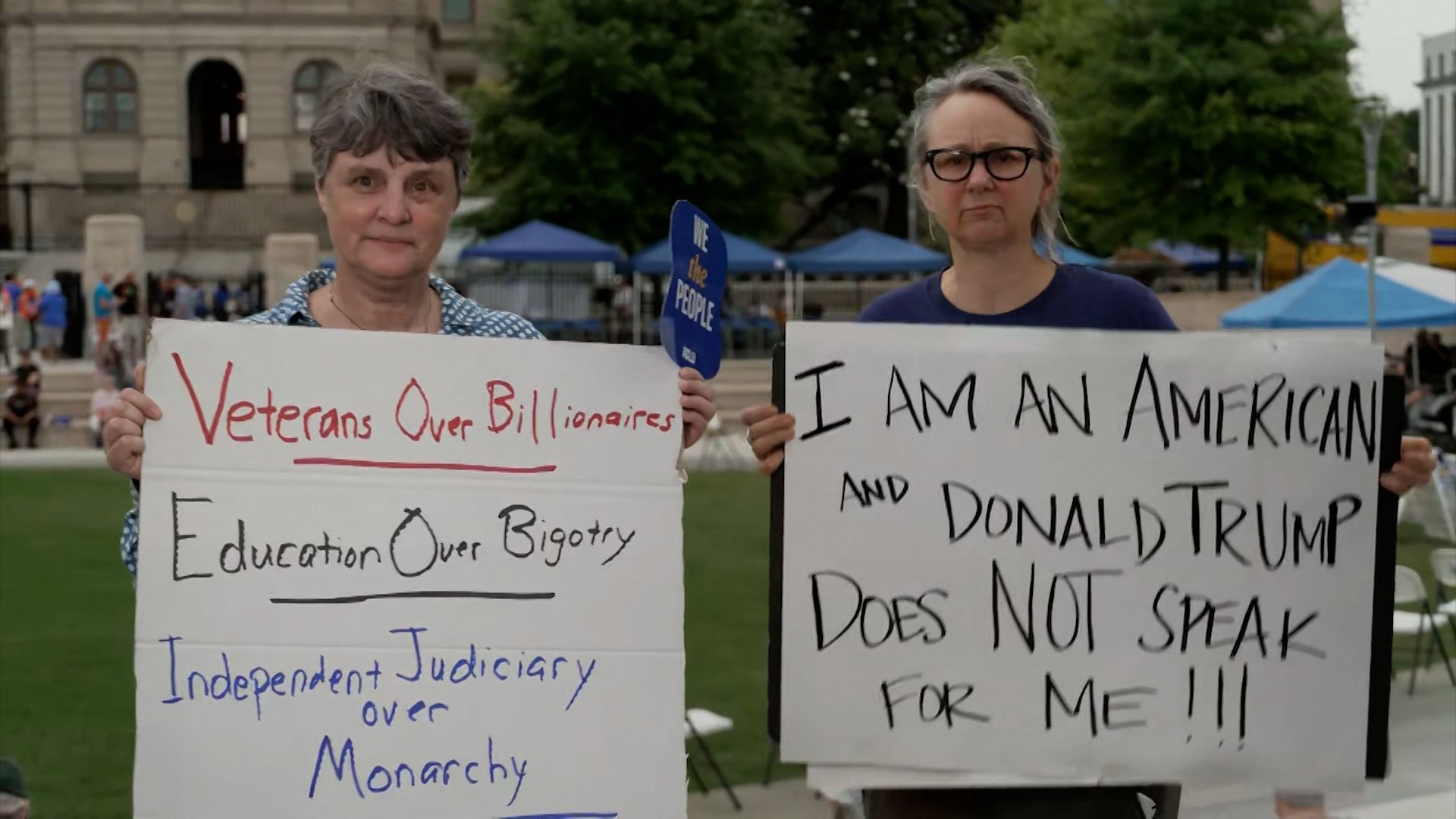
Global Protests Erupt Amidst Rising Authoritarianism and Political Tensions
Introduction
Across the United States, tens of thousands participated in over 2,000 "No Kings" rallies on Saturday, protesting what organizers termed "authoritarianism, billionaire-first politics, and the militarization of our democracy." These widespread demonstrations coincided with a military parade in Washington, D.C., celebrating the US Army's 250th anniversary—also President Donald Trump's 79th birthday—and followed a week of intense anti-immigration protests in Los Angeles. This article delves into the motivations, locations, and key messages of these significant protests, examining their context within the broader political climate and ongoing legal battles surrounding presidential authority.
Nationwide "No Kings" Rallies: A Cry for Democracy
The "No Kings" rallies drew diverse crowds united by a common concern: the perceived erosion of democratic principles under President Trump's administration. Protesters consistently highlighted Trump's attempts to expand executive power, viewing them as a dangerous slide towards autocracy.
Key Concerns: Attendees expressed deep anxieties over several issues, including:
- The increasing militarization of American cities and the perceived threat this poses to civilian liberties.
- The prioritization of billionaire interests over the needs of the general population.
- The undermining of democratic institutions and the rule of law.
- The harsh immigration enforcement policies and the federal government's response to anti-ICE protests.
Rally Locations and Key Messages: Rallies took place across the country, with notable participation in major cities like New York (over 50,000 attendees), Los Angeles (over 20,000), Atlanta, Philadelphia, and Houston. Chants of "No kings in America!" resonated throughout these events, accompanied by signs emphasizing the importance of democracy and criticizing the excessive spending on the military parade. Protesters in Philadelphia highlighted the historical significance of their location, connecting the current fight for democracy to the city's role in the American Revolution.
Criticism of the Military Parade and Government Spending
The military parade itself became a focal point of criticism, with many protesters questioning the allocation of $45 million in taxpayer funds for the event. Attendees argued that these resources could be better utilized for essential services like education, healthcare, and poverty alleviation. The sheer scale of the parade—featuring 28 Abrams tanks—was interpreted by some as a display of power intended to intimidate and silence dissent.
Immigration Crackdown: A Catalyst for Protest
The ongoing immigration crackdown, particularly the forceful response to anti-ICE protests in Los Angeles, served as a powerful catalyst for many protesters. "Dreamers," beneficiaries of the Obama-era DACA program, along with other immigrant rights activists, voiced their concerns about the administration's policies and the arrests of union leaders and elected officials during previous protests. The fear and anxiety caused by these actions fueled significant participation in the "No Kings" rallies.
Challenges to Presidential Authority and the Supreme Court
The protests occurred against the backdrop of pending Supreme Court decisions that could significantly impact the extent of President Trump's executive authority. The court was considering the legality of nationwide injunctions—court orders that block presidential policies nationwide—an issue central to many of the challenges to Trump's executive actions. The potential impact on policies relating to birthright citizenship, mass layoffs, and deportations was a major source of concern for both protesters and the administration.
Arguments Before the Supreme Court: The Supreme Court heard arguments about nationwide injunctions, a contentious issue that has seen a dramatic rise in use, especially against Trump's policies. Justices expressed varying views on whether such injunctions should be allowed to broadly block executive actions. The Trump administration argued that these injunctions hindered their ability to implement key policies.
Key Cases Before the Supreme Court: Beyond the nationwide injunction case, the Supreme Court was also considering challenges to the Trump administration's policies on birthright citizenship and gender-affirming care for minors. The court had already sided with the administration in several other cases, including maintaining a ban on transgender service members and allowing rapid deportations.
The Arrest of Vance Boelter
Separately, Minnesota Governor Tim Walz confirmed the capture of Vance Boelter, the suspect in the assassination and attempted assassination of two Minnesota lawmakers. This event further fueled anxieties about political violence and instability.
Taiwan's Export Controls Against Huawei and SMIC
In a move aligning with US efforts to curb China's technological advancements, Taiwan added Huawei and SMIC to its export control list. This action, while largely symbolic due to existing US sanctions, signifies Taiwan's increased cooperation with the US to prevent loopholes in technology restrictions against China. The discovery of TSMC-made chips in Huawei products further highlighted the need for stricter oversight of supply chains.
Martine Rose's London Fashion Show: A Celebration of Cultural Diversity and Adversity-Born Creativity
Fashion designer Martine Rose staged a Spring-Summer 2026 collection in a former London job center, showcasing her designs alongside other independent designers and cultural figures. This unconventional venue served as a testament to the city's vibrant and diverse cultural landscape and its history of creativity born from adversity. Rose's collaboration with Kendrick Lamar on his Super Bowl halftime performance highlighted her growing influence in the fashion world and her ability to challenge societal standards.
